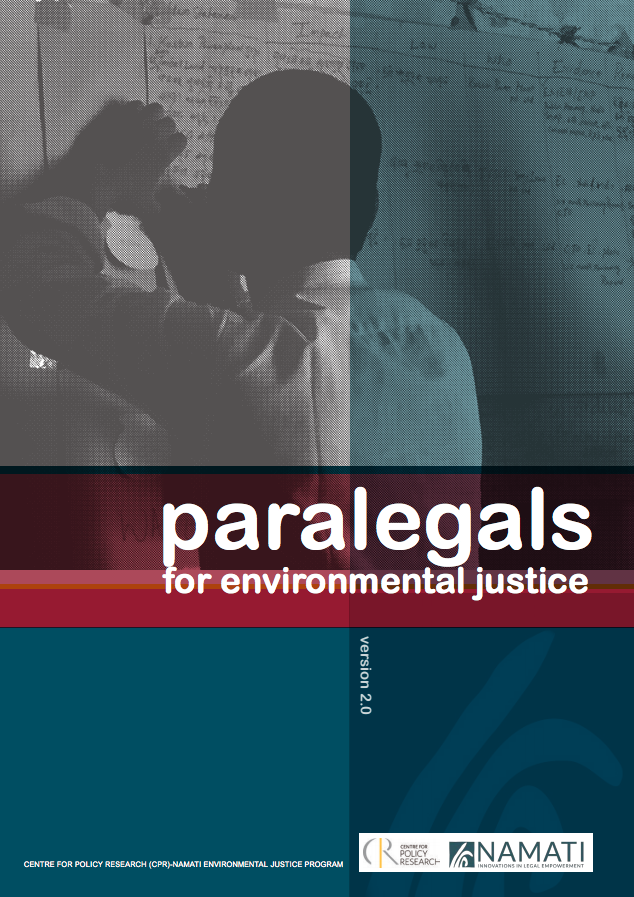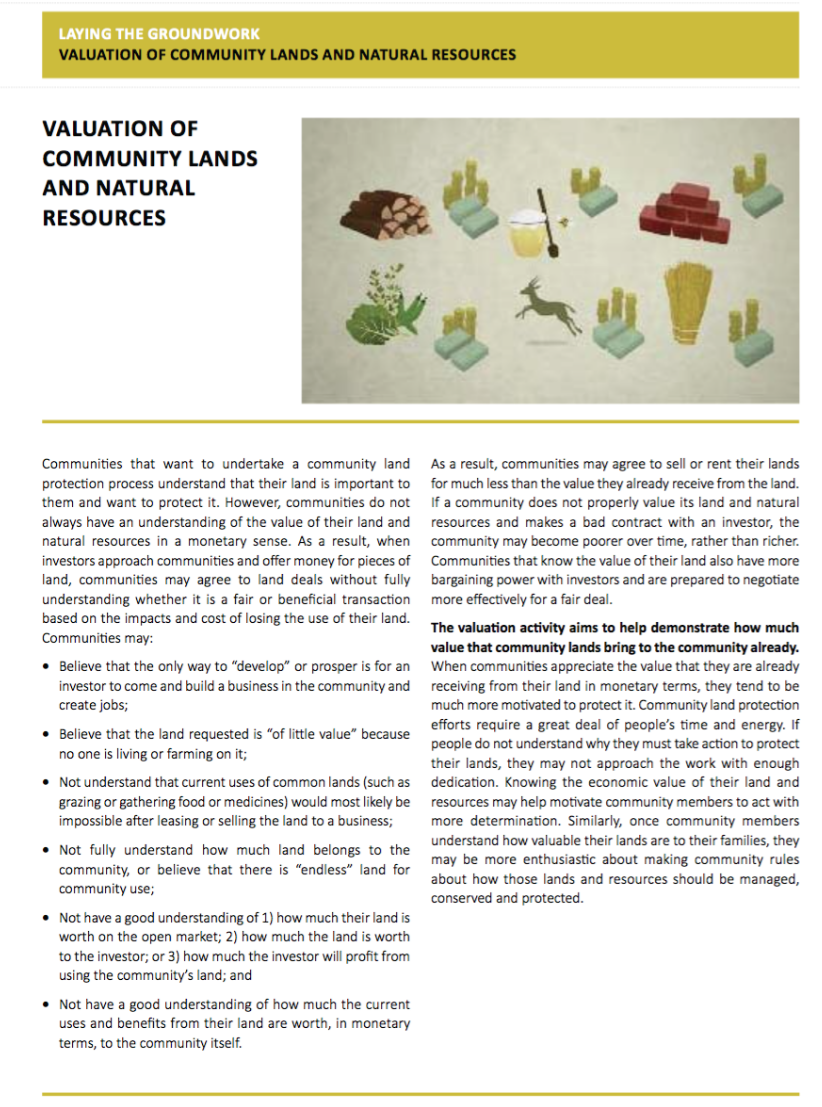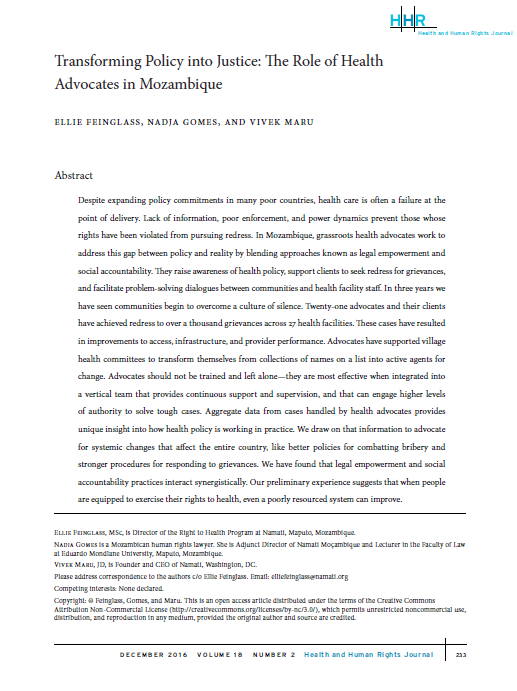Namati: Innovations in Legal Empowerment
Namati is an international organization that tests the potential of legal empowerment through innovative interventions and research. Through our work, we seek a better understanding of the impacts of legal empowerment and the most effective mechanisms for achieving them.
As a means of cultivating a more robust movement for legal empowerment, Namati also hosts a growing Global Legal Empowerment Network of practitioners and supporters. Network members are active in every continent in the world, whereas Namati’s programs and research focus on exploring the potential of legal empowerment in specific countries, including Sierra Leone, India, Liberia, Mozambique, and Uganda.
Mission: Building a movement of grassroots legal advocates
Resources
Displaying 26 - 30 of 69Paralegals for Environmental Justice
A community paralegal, also known as a grassroots legal advocate or a barefoot lawyer, is a community resource person and mobiliser, trained in basic law and legal procedures and in skills like mediation, negotiation, education, and advocacy.
Paralegals for Environmental Justice
A community paralegal, also known as a grassroots legal advocate or a barefoot lawyer, is a community resource person and mobiliser, trained in basic law and legal procedures and in skills like mediation, negotiation, education, and advocacy.
Valuation of Community Lands and Natural Resources
A chapter from the Guide that explains the Valuation activity, designed to build awareness of the value of common lands and natural resources and increase community motivation to complete the community land protection process.
______
How To Develop A Community Paralegal Program
A toolkit of 26 items designed for people designing or improving community-based paralegal programmes. It draws lessons from both grassroots experience and research. Includes
Transforming Policy into Justice: The Role of Health Advocates in Mozambique
Despite expanding policy commitments in many poor countries, health care is often a failure at the point of delivery. Lack of information, poor enforcement, and power dynamics prevent those whose rights have been violated from pursuing redress. In Mozambique, grassroots health advocates work to address this gap between policy and reality by blending approaches known as legal empowerment and social accountability.







